Plasticful Foods
Plasticful Foods is a speculative design project, which aims to make consumers critically reflect upon their waste management behaviours.
By extrapolating facts from the present day, and projecting them into a highly possible, near future, Plasticful Foods intervenes in the audience’s normalised, or subconscious behaviours.
The discomfort created by Plasticful Foods is coupled with a potential, sustainable solution through the plasticfulfoods.com website, which collects useful resources and information on the topic, into one accessible location for audiences to pursue.
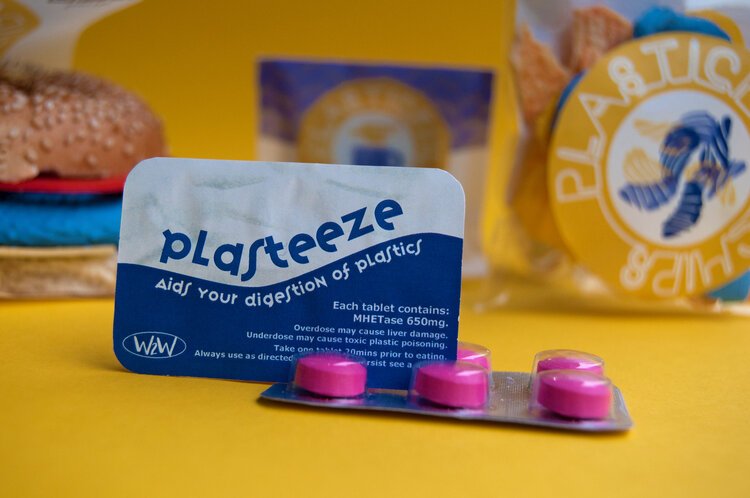
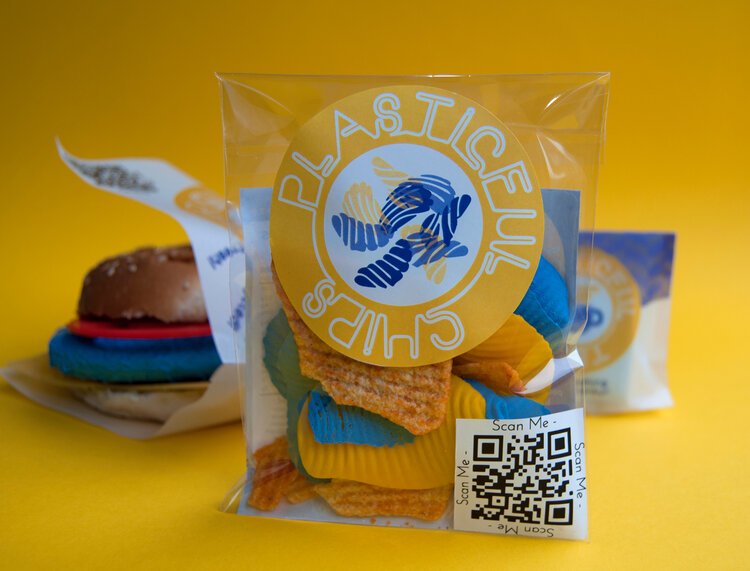
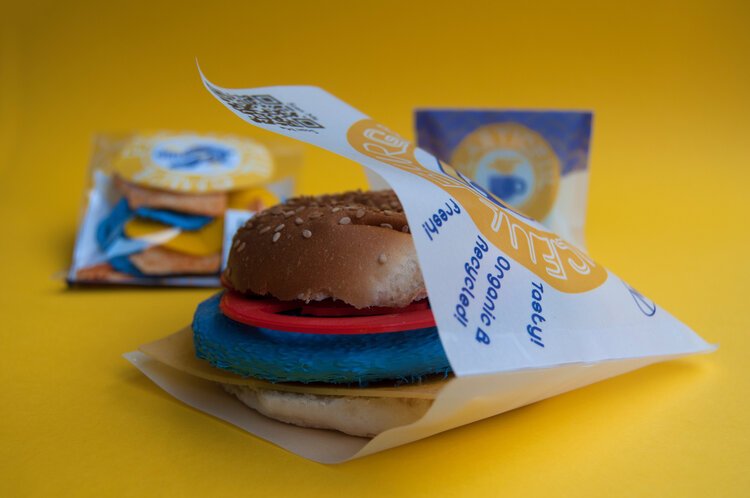
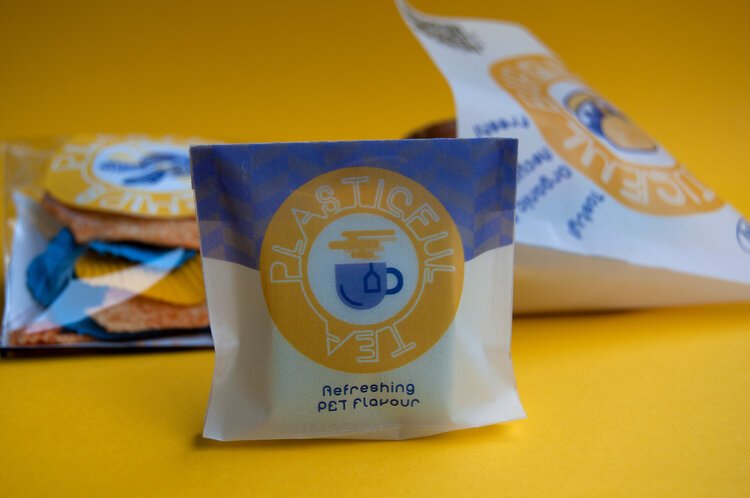
This project, in partnership with the University of Amsterdam (UvA), and Hogeschool Amsterdam (HvA), aimed at challenging people’s waste management behaviours.
This project was:
Exhibited at Milan Design Week 2020, with Isola Design District.
It also won the DelaO Speculative Design Challenge Award 2020
And was included in SpeculativeEDU’s publication Beyond Speculative Design: Past – Present – Future 2021.
My Role:
Conceptualisation of concept (in conjunction with team)
Creation of branding and applications across web & print
HTML/CSS Coding & UI/UX design of plasticfulfoods.com
Marketing and copywriting
Creative direction & project management
Plasticful Foods is a Speculative Design/Design Fiction project. Developed by the Waste2Worth team, for the University of Amsterdam (UvA), and Hogeschool Amsterdam’s (HvA) ‘New Waste Vision’. The project began with the aim of changing student and staff’s waste management behaviours to be more sustainable.

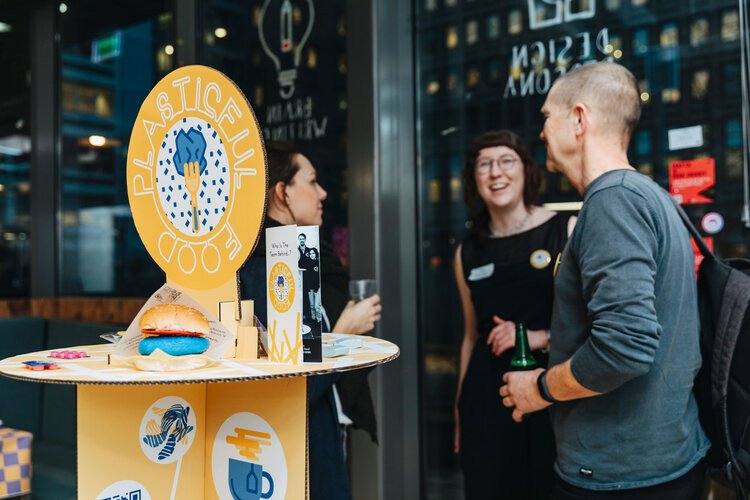
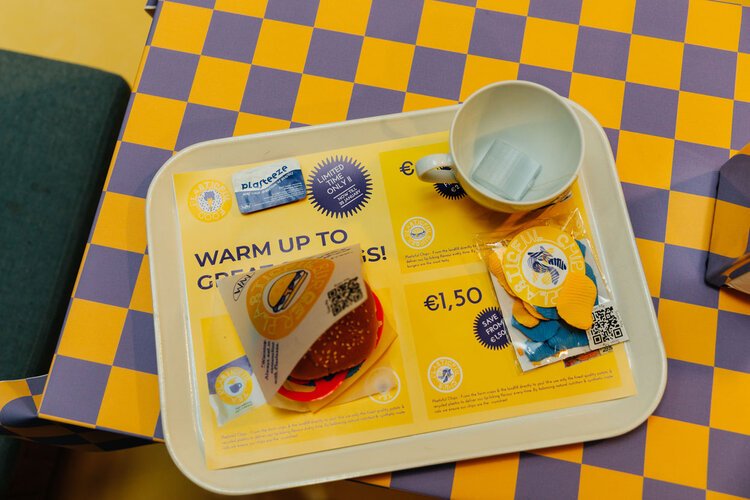
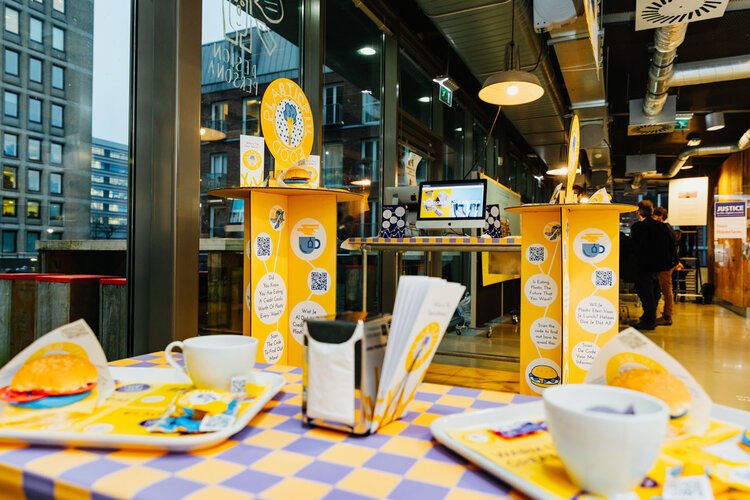
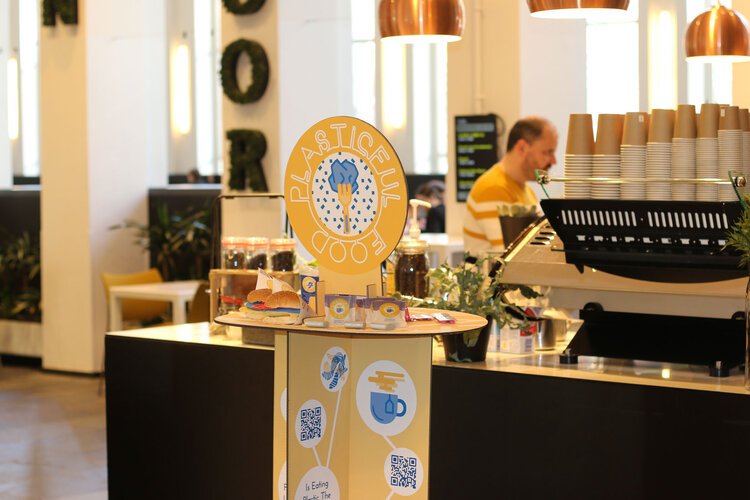
The UvA and HvA have committed to making their waste management processes completely circular by 2024. Therefore, they hope to be an example for the Municipality of Amsterdam, for how sustainable circular processes could be successfully implemented on a large scale (the universities include roughly 90,000 students and staff across 10 campus locations). Yet, in order for waste management procedures to be more sustainable, the user’s behaviours, in this case the students and staff of UvA and HvA, would also need to change to be more sustainable.
Therefore, our project began with the following goal: ‘To design a product, tool, method or strategy to change the behaviour of students and staff to handle waste more sustainably within the campuses and university facilities.’
Yet, in order to achieve this goal, we would have to make the issue of waste management prominent within the user’s minds. We had to make them think about a topic which is often subconscious. Therefore, we adopted a speculative design approach, and Plasticful Foods was born.
The Plasticful Foods project has taken facts from the present day, and projected them into a possible future, to invite audiences to imagine that Plasticful Food may be a viable waste management process within the coming decade. As we are already incidentally consuming large amounts of microplastic daily, and waste management procedures are not changing rapidly enough to contain the problem of global plastic pollution, eating our plastic waste may be our only option for plastic containment in the near future.
Is this a future you would like? Or would you act to avoid this future?
Our Results:
Our physical prototypes were displayed in two university locations for a total of 10 days. Within this time we have over 200 unique visits to our site. This included over 450 page views (total number of times any of our webpages were visited). The average visit duration was 3 minutes 18 seconds, yet we also had a number of visits which lasted over 40mins, and these users clicked through our collected resources many times to be re-directed to the resource websites. 63% of our site visits were direct links using the QR Code to get to the website, and the other 37% of visits were from social media, web searches, and other websites.
Therefore, we believe our project was successful, although it has only been tested on a small, preliminary scale. People did encounter our physical products within the university space, scan their codes, and visit our website. Of these visitors, some remained on the page for extended periods of time and their behaviour indicates they carefully read through the waste management resources we collected. This indicates to us that these select users have been encouraged to change their everyday behaviours towards waste management, having been motivated by our campaign to do so.
Press:
HvanA, Black Mirror At The HvA: Will We Soon Eat Plastic To Save The World?
Folia, Plastic Burgers in UvA Ask Attention for Plastic Problem.
SpeculativeEDU, Beyond Speculative Design: Past – Present – Future Book, 2021.


